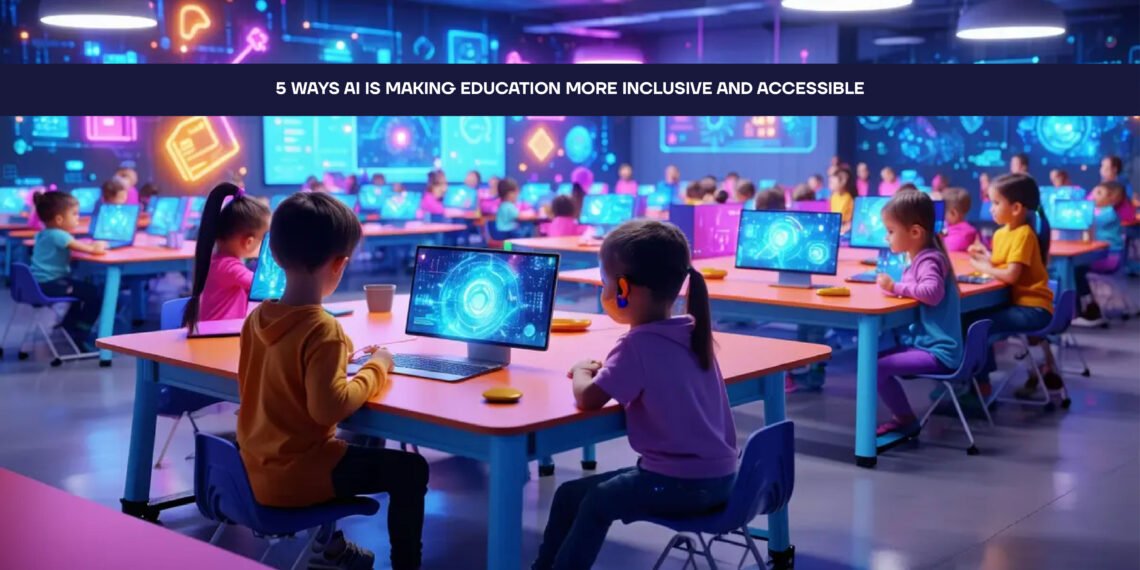Artificial Intelligence (AI) is revolutionizing various aspects of our lives, including the field of education. By facilitating personalized learning experiences and overcoming language obstacles, AI is significantly contributing to the inclusivity and accessibility of education for everyone. Below are five ways in which AI is transforming the educational environment.
Personalized Learning Experiences
AI-powered platforms have the capability to assess students’ learning behaviors, identifying their strengths and weaknesses. This information facilitates the creation of personalized lesson plans that cater to each student’s unique requirements. Adaptive learning technologies modify content dynamically, enabling each student to advance at their own speed. This tailored approach supports students who may find it challenging to succeed in conventional educational environments.
Assistive Technologies for Diverse Needs
AI-driven assistive technologies are transforming the educational landscape for students with disabilities. Tools such as speech-to-text software, screen readers, and AI-based sign language interpreters are significantly improving accessibility. For instance, AI can transcribe spoken words into text for students with hearing impairments or provide real-time captions during lectures, ensuring that all students have equal opportunities to learn.
Language Translation and Support
Language barriers pose a considerable challenge in the realm of global education. AI-driven translation tools play a crucial role in overcoming these obstacles by rendering educational resources available in various languages. Additionally, AI can facilitate real-time translations during live classes, promoting inclusivity for non-native speakers and students from abroad.
Intelligent Tutoring Systems
AI-powered tutoring systems provide 24/7 assistance, delivering immediate feedback and clarifications on intricate subjects. These virtual educators can tailor their approach to match a student’s individual learning preferences, supplying supplementary materials or different explanations as required. This constant availability guarantees that students from various backgrounds and time zones can receive high-quality education at any time.
Data-Driven Insights for Educators
AI supports educators in recognizing students who might require additional assistance. Through the analysis of performance data, AI can reveal patterns and forecast possible learning difficulties before they escalate. This anticipatory strategy allows teachers to take early action, providing focused support to enhance student success.
In conclusion, AI represents more than a mere technological progression; it serves as a significant instrument for promoting inclusivity within the educational sphere. Through the customization of learning experiences, addressing varied requirements, overcoming language obstacles, and offering data-informed insights, AI contributes to the establishment of a more fair and accessible educational landscape for everyone.












